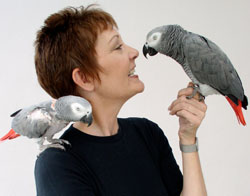 What is a “starter bird?” Is that like a “starter human?” Maybe that’s why human babies start out small. I don’t have children but I imagine that when they are small, they’re easier to handle. They have no teeth so they can’t bite you. They are loud and messy however, and we have to teach them everything. They can’t talk and the only way they can complain to us about whatever it is that’s bothering them is by crying. So maybe human babies are “starter humans.” Maybe they show up that way so we can learn as they grow up and get larger.
What is a “starter bird?” Is that like a “starter human?” Maybe that’s why human babies start out small. I don’t have children but I imagine that when they are small, they’re easier to handle. They have no teeth so they can’t bite you. They are loud and messy however, and we have to teach them everything. They can’t talk and the only way they can complain to us about whatever it is that’s bothering them is by crying. So maybe human babies are “starter humans.” Maybe they show up that way so we can learn as they grow up and get larger.
It’s a given that they become more expensive, more difficult and more demanding when they get older and bigger. They begin to talk and they learn their way around the world, gathering more experience, and acquiring more independence. They become more self-sufficient and pick up habits that we aren’t necessarily fond of, like sassing back and lying about doing their homework when they haven’t cracked a book. For the most part, they hate cleaning their room and helping with the dishes. They disappear into the bathroom for hours at a time. How do I know this when I’ve never even been pregnant? I was a kid once. Those are the days when I assume parents wish they had their little baby back. But I think it all comes down to size. Babies simply don’t eat as much as your seventeen year-old varsity running back on the high school football team and in a way, they are probably easier to manage. Babies may not be quieter, but to their advantage, they do have have that sweet and innocent thing going on.
I was at a Bird Club Meeting and the membership was having a discussion. A woman in the club had a friend who wanted a Macaw, but her friend didn’t have any experience. The general consensus of the club was that she get a “Starter Bird” to learn on and then “work her way up” to the aforementioned macaw she so desperately wanted. Well let me tell you, if I was a budgie I’d be one honked-off bird. As it was, I was one honked-off Human. I really was absolutely horrified. I found it disrespectful to the “Budgie Nation,” the “Cockatiel Nation” and every other small bird that ever chirped his way into someone’s heart just by being exactly who they are.
As you might know, I happen to like African Greys. I liked African Greys before I even had an African Grey. When I finally got Parker after years of putting off getting a Grey, I knew I had made the right decision by getting a bird and more specifically, about getting an African Grey. I wrote an essay about them years ago trying to explain what it was about them that I adored. A portion of it got picked up by “BIRD TALK” Magazine and it was the first time my words were ever published in “BT.”
I blame that article containing my quote for joyfully dragging me into the world of writing about aviculture and I’ve never looked back. Occasionally, I wonder what in the hell I ever did with all of that free time I had before I became a professional writer with parrots. Recently, I came across some photos of what my Condo looked like before I had birds and started getting published. There it was: gleaming, tidy, immaculate. Apparently I used all that free time doing a lot of cleaning. But I digress.
These were the words I wrote about African Greys and why I favored them:
- "When I I first learned about African Greys, I was intrigued. Greys were smart. Greys were elegant and understated. They reminded me of that well dressed but not overbearing, intelligent guy at the party who took in everything and only opened his mouth when he had something extremely witty to say. I thought of a Grey as that guy who had a half smile on his face and found being a part of things far more fun than being the center of attention. But then became the center of attention because of his personality. He got the attention from his brains and his manners, not his looks.
- I visualized Greys as a combination of Nathan Lane and Gene Kelly in a gray tuxedo. Not flashy like a Cockatoo, (Mae West) brilliantly colored like a Macaw, (Carmen Miranda or Rue Paul) or as standard as a budgie or cockatiel, (The Dallas Cowboy Cheerleaders and The Rockettes).
- I saw a Grey as fitting in with what I am like: sort of understated and efficient. I’m not real quiet, but I’m to the point. I’m bookish, but I have a sense of humor. It was as if I thought a Grey would get my jokes.”
You see? I always wanted a Grey because I thought we’d get along. I didn’t get a Grey because I thought he would talk, or because he was gorgeous. Greys aren’t particularly flamboyant. They are rather plain really and if it weren’t for that gorgeous red tail, I’m not sure they would be as popular as they are. But they aren’t a really big bird either. Of course many people who tend to like Lovebirds, Parrotlets and Budgerigars might have a bone to pick with me about that. My point is that I got into Greys because their personality suited me. I got into birds like most people: ass-backwards. But I believe I more than made up for my mistake of getting a bird and then figuring out what it was supposed to eat. I began reading and educating myself and I haven’t stopped. But I didn’t get Parker as a “starter bird” like he was a set of training wheels for a bicycle.
If you want a bird, do your homework first and keep learning. If you have your heart set on a cockatoo and you just know this species is what you want, find someone who has one and knows what they are doing. Learn from them and take your time. Read about them. Take some classes. Learn about what they need and require. Learn about their nutritional needs, their particular eccentricities and immerse yourself in all things "cockatoo." Discover the good things about them as well as the bad. Visit dozens of websites. Read up on behavior training because you’re going to need to know this. Do your work and then set about finding the particular species you think might work for you and your lifestyle. After all of that, finally comes the time for searching for that one Cockatoo that will become a member of your family. Just like people, not all birds are the same. Nor are all Cockatoos. Nor are all Bare-eyed Cockatoos. This will better your chances for a successful situation. And along the way you just might discover that Cockatoos aren’t really for you. Through your research, you might find yourself drawn to a Jardine’s Parrot. Or maybe you’ll take an interest in Amazons. Just because you started out interested in Cockatoos doesn’t necessarily mean that your research will lead you to one as the ideal bird for you.
This goes for the little birds as well. If you just love little Quakers, and God knows tons of people simply adore them, learn about them and have at it! But don’t get a Quaker in hopes that you might learn enough about birds in order to graduate to a Greenwing Macaw. I find this very disrespectful to both the Quaker and the Greenwing. Knowing how to care for a Quaker is not going to give you the proper skill set to care for a Greenwing. And with all due respect to the Quakers of the world, caring for a Greenwing isn’t the same as caring for the Quaker. Having fostered several Quakers, I personally think a Greenwing would be easier. As far as I’m concerned, you haven’t lived until you’ve been nailed by a Quaker. They are little birds with a big personality and writing them off as a “little bird” is a huge mistake.
Each species of birds has their own set of attributes. They also have their peculiarities, enrichment and dietary needs, their own personalities and tendencies.
Please don’t head out to get a “Parakeet” at the local “Big Box” pet store in hopes that this little bird will teach you about caring for birds. A small bird isn’t a “starter bird” so that one day you will be able to adopt a Blue and Gold Macaw. Think again. With that approach, chances are that Blue And Gold will never come because you didn’t learn enough about working with what you already have. The situation has a high chance of failure because you aren’t working with the budgerigar because you want her. They aren’t just for “practicing,” so to speak. That Budgie isn’t getting the respect she deserves because whoever does this isn’t interested in who she is and what she has to offer.
I love the little birds and I think they have just as much to offer as the big guys. They deserve our love, the best care we can provide and above all, our respect. Love them for what they are. We can learn a lot from small birds. But what we learn from them isn’t how to care for a bigger bird.
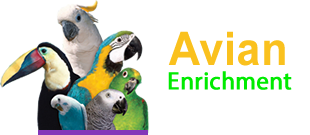














































































































































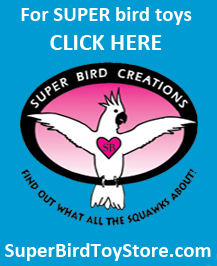
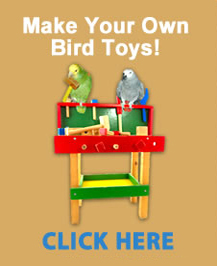
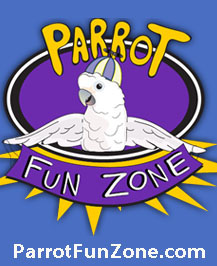
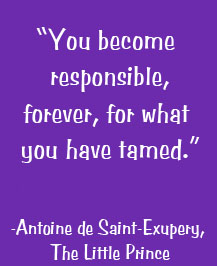
Comments powered by CComment